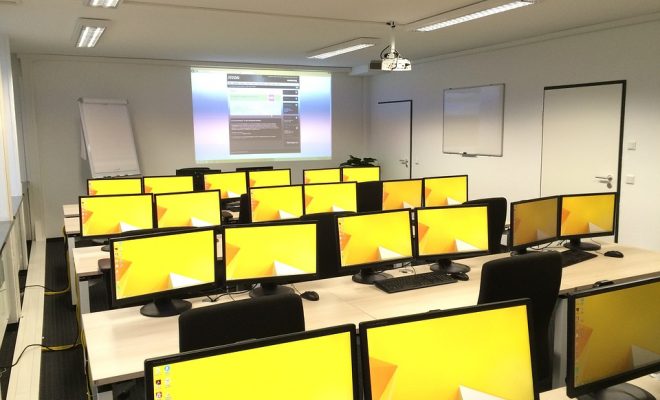Diverse Conversations: Analyzing the Intersection of Higher Education and Immigration Reform
Immigration reform has been a hot button issue in the United States for decades. Earlier this year, the Obama administration, along with members of the Republican Party, outlined a plan for comprehensive immigration reform. When they sit down to work out the details, it is critical that higher education finds its way to the center of the discussion. A college education is a virtual prerequisite for securing the American dream and currently it is an option that is off the table for more than one million undocumented students. In order to learn more about the intersection of higher education and immigration reform, I sat down with Luis G. Pedraja, Provost and Vice President for Academic Affairs at Antioch University in Los Angeles.
Q: How does the lack of legal immigration options affect the college prospects of the children of illegal immigrants and their futures?
A: Children of illegal immigrants face limited prospects, greater financial burdens, a lack of support networks, and fear. While some states allow undocumented students to attend state institutions, pay in-state tuition, or provide some level of state financial aid, many states bar them from even enrolling. In addition, they cannot receive federal financial aid, loans, or work-study money. Because of their status, most of them will not find substantial employment that will allow them to pay tuition. Unless they receive scholarships, the majority of private universities will be out of reach. The few who do attend colleges most likely will have to work several low paying jobs to cover living expenses and tuition while they attend classes, often preventing them from full-time studies. In addition, they must cope with the constant fear of deportation for them and their families.
Q: By taking the option of attending college off the table for millions of immigrants, it seems that we are going against the values and principles upon which this country was founded. What are your thoughts?
A: Our country was founded on the principle that all are endowed with three basic rights: life, liberty, and the pursuit of happiness. The sole crime of the undocumented is the pursuit of these basic human rights. Most of these students came as children, some as infants, brought by parents hoping for a better future and the need to survive. Their economic woes often resulted from unfair trade, economic exploitation, and conflict—at times due to U.S. and European trade practices and politics. These children did not choose to break any immigration laws. Most were educated in our schools. Some were even born here, but unable to obtain birth certificates out of fear. They do not always have options to return to their home countries, where they no longer fit or have ties. Thus, they are trapped, victims of circumstances, with limited future prospects for education, gainful employment, and economic survival. To penalize them for actions over which they had no control would be akin to giving a ticket to everyone riding in a car.
Q: How should immigration reform address this?
A: I would like to challenge our political leaders to make education a path to citizenship. While broader reform is necessary, making higher education in particular a path to citizenship can benefit not only undocumented students, but also our nation. Let me elaborate. First, although the majority of undocumented students are already fluent in English and can function in American society, a higher education will ensure it and quiet some critics. Second, the attainment of a higher education degree will demonstrate their work ethic and abilities to be productive members of society. Third, education as a pathway will enable these students to seek gainful employment and contribute to society. Fourth, we train a large contingent of foreign students that eventually take their acquired skills abroad; an education pathway will keep highly skilled and talented individuals in the U.S., contributing to our economic development. Finally, research shows that individuals with some college education tend to earn more than those without. This will enable them to have greater purchasing power and contribute more to taxes. Current research indicates that undocumented laborers pay taxes, but because of the level of employment they can attain, their tax contribution is not as high as other groups.
Q: How does the reluctance to pass immigration reform affect the U.S. economy?
A: Studies indicate that close to 65% of job openings in the next five years will require at least some college education. While many countries invest in education as a way of strengthening the economy, it is one of the first items we tend to cut. Currently, only about 40% of the population attends college. This is creating a gap that will have a significant impact on our economy, leading to the erosion of the middle class, increased unemployment, and lower purchasing power. To strengthen our economy and leadership in the world economy, we need to be increasing access to education and encouraging more people to attend college to ensure a skilled workforce in our country.
Barring undocumented students from attending college only aggravates matters. First, it prevents the students from obtaining better employment that will increase their purchasing power and tax contributions. As a result, these young men and women will have a grim future, with limited prospects of finding better jobs. In addition, they will be more vulnerable to exploitation and abuse. Second, by not having sufficient skilled labor within our country, we risk that industries will be more drawn to relocate research and production to other countries, again lowering our GDP and our economic power. Instead of exporting talent to other countries, we should be importing individuals who will contribute to our economic growth. To some extent we already bring talented and skilled laborers to our country from abroad, so why not grow our own who already share our values? Third, by educating these men and women, they will be able to attain better employment and bear a greater portion of our tax burden, which will be necessary to sustain our aging population. Fourth, these students can be “ambassadors” to other countries, serving to bridge our interests and values to those of other nations and cultures.
Our failure to pass immigration reform ultimately cripples our economy by preventing us from keeping skilled individuals in our country and from bringing those with skills that we might be lacking. Immigrants are economic drivers. They do not take jobs from Americans; they often serve as the backs upon which America is built and often do the work that most of us are unwilling to do.
I would like to thank Dr. Pedraja for participating in this interview and for his insightful commentary on the intersection of higher education and immigration reform.





